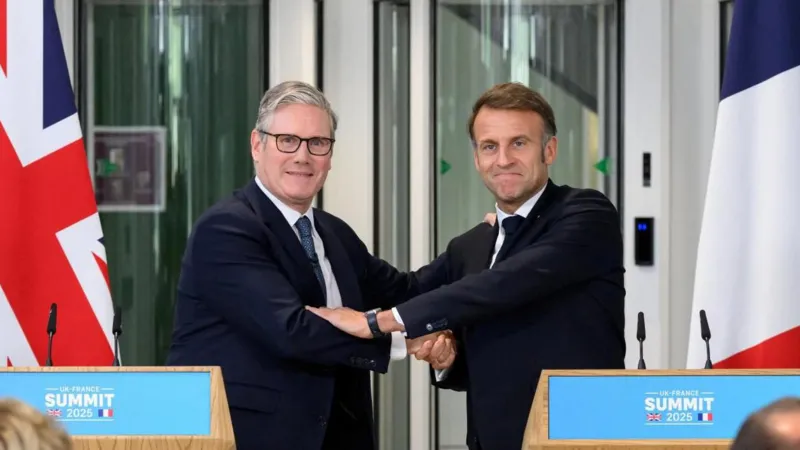Starmer and Macron Navigating Impatience: A Call for Prudence in Turbulent Times
In a world increasingly defined by rapid-fire opinions and a demand for immediate solutions, political leaders are finding themselves under immense pressure to deliver instant results. This was palpable during a recent press conference where UK Prime Minister Sir Keir Starmer and French President Emmanuel Macron, both facing significant political headwinds, made a compelling case for patience, nuance, and the often-unseen value of thoughtful compromise.
The backdrop to their joint appearance was the looming threat of populist movements on both sides of the English Channel – namely Reform UK in Britain, led by Nigel Farage, and the National Rally in France, spearheaded by Jordan Bardella and Marine Le Pen. While not explicitly named, the influence of these parties was a constant, unspoken presence, their anti-establishment fervor and straightforward communication resonating with electorates disillusioned with traditional politics.
“Whilst we have been working hard to get a returns agreement, others have been simply taking pictures of the problem,” Sir Keir remarked, a clear, albeit indirect, jab at political opponents who he suggests are more interested in criticizing than in crafting solutions. He emphasized the need to demonstrate that “pragmatic politics is the way to deliver the results that matter for both of our peoples,” cautioning against the seductive, yet ultimately hollow, allure of “the politics of easy answers.”
President Macron echoed these sentiments, speaking of the necessity to acknowledge “the complexity of the world” and resist the “temptation” that he believes characterizes the approach of many populists. His remarks underscored a shared understanding between the two leaders that the intricate challenges facing their nations – from economic stability to international relations – cannot be addressed with simplistic slogans.
The issue of small boat crossings, a key concern for voters and a focal point for opposition parties, was highlighted as a critical area where tangible progress is demanded. Polling data suggests a significant portion of voters who have drifted towards Reform UK could be swayed back to Labour if improvements are seen in this area. Furthermore, the perception of Nigel Farage as a harbinger of change, even among a significant percentage of the electorate, presents a formidable challenge.
The core of Starmer’s argument, as observed recently, is a sharpening public critique of Farage and a framing of the next general election as a stark choice between his vision for Downing Street and that of his populist rival. This strategy hinges on persuading voters that pragmatic, albeit slower, governance will ultimately yield more sustainable and beneficial outcomes than the radical, often confrontational, approach favored by Reform UK.
Beyond the immediate political maneuvering, the article delves into a deeper concern shared by senior figures within both the Labour and Conservative parties. There’s a growing anxiety not just about the possibility of Reform UK winning an election, but about the potential fallout if such a victory, and the subsequent governance, were to ultimately fail to meet expectations. This raises a profound question: after a series of perceived failures by established parties, where would the electorate turn if a new political force also falters?
The current political climate, characterized by impatience and a desire for decisive action, forces leaders like Starmer and Macron into a delicate balancing act. They must acknowledge the public’s desire for change while simultaneously advocating for the measured, complex, and often gradual process of effective governance. Their recent statements signal a commitment to this path, betting that a steady hand, combined with a clear articulation of policy and a critique of simplistic alternatives, will ultimately prevail.
As the political landscape continues to evolve, the effectiveness of this appeal to patience and pragmatism remains to be seen. However, the joint front presented by Starmer and Macron offers a glimpse into the challenging task of leading in an era that seems to reward soundbites over substance, and immediate gratification over long-term stability.

